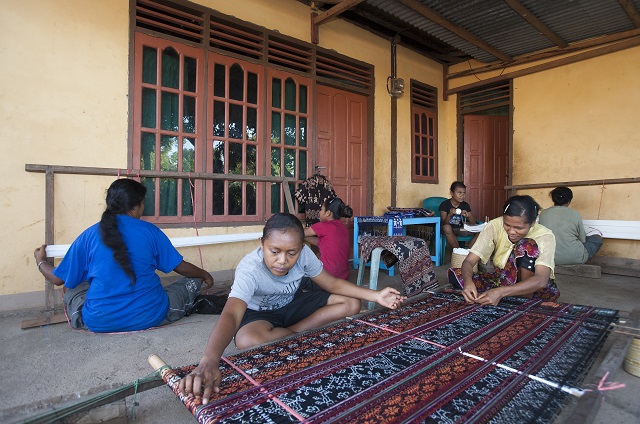SOS Family Strengthening Program Jakarta, Indonesia
Preventing Child Abandonment in Indonesia
Like many urban areas in developing countries, Jakarta has to cope with numerous social problems, such as poverty, unemployment and homelessness. Families from other urban and rural areas continue to move to the capital city in search of a better future for themselves and for their family.
However, life in the capital is often very difficult for people with little education or training. Jobs are scarce and many parents are unemployed, unable to afford food, education, and healthcare for their children.
Single mothers in particular find it hard to get a job; without access to day care for their children, they can’t find employment, or are forced to leave them unattended while they are at work.

SOS Children’s Villages launched a Family Strengthening program in the city in 2007 to respond to the needs of vulnerable families struggling to care for their children and prevent child abandonment. As most the program participants are un- or underemployed, an important component of the program is the provision of entrepreneurship and income generating activity trainings for parents.
Parents receive entrepreneurship trainings on various crafts such as how to breed chickens/egg production, grow vegetables or fruits (watermelons and melons) for market sale, patchwork crafts, hairdressing, etc. Upon completing their training, participants receive a loan to help them buy the necessary equipment to launch their business and are supported until they reach financial independence
Program participants are also encouraged to join SOS cooperatives where they receive additional financial training and benefit from pooling their savings. Parents also receive psychosocial support and counselling, as well as training in child’s rights, positive discipline, nutrition, family planning, leadership, and teamwork.
While parents develop their skills, SOS Children’s Villages ensures the immediate wellbeing of their children by providing them with access to education, healthcare, as well as daycare.
Currently, the program benefits 228 vulnerable families, including more than 600 children. Most families participating in the program reach independence, and therefore move out of the program, after 3 years of support.
